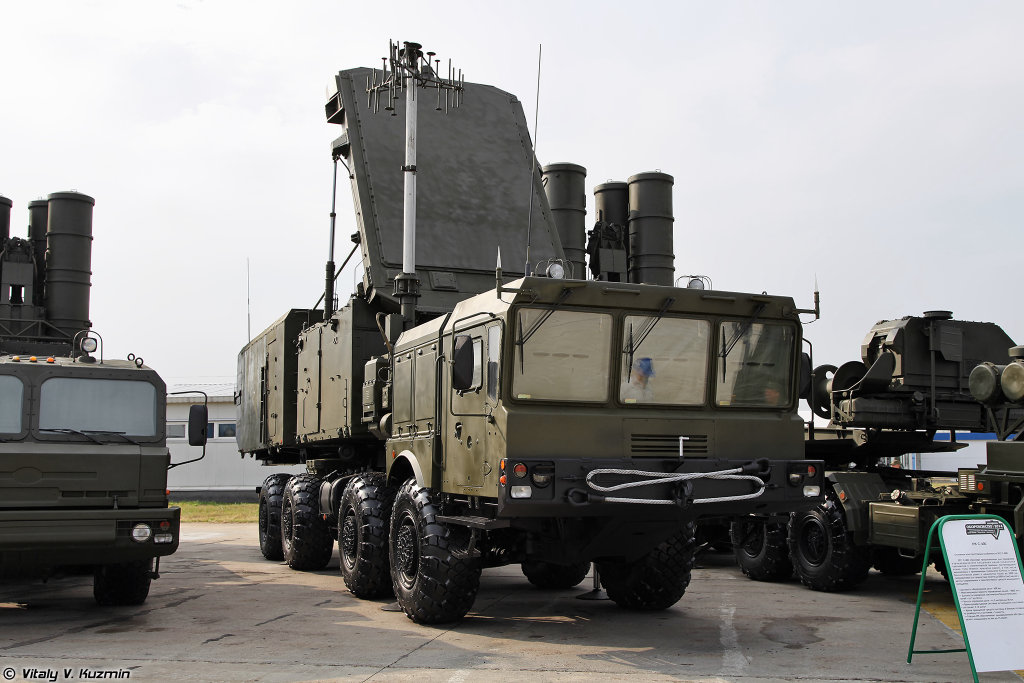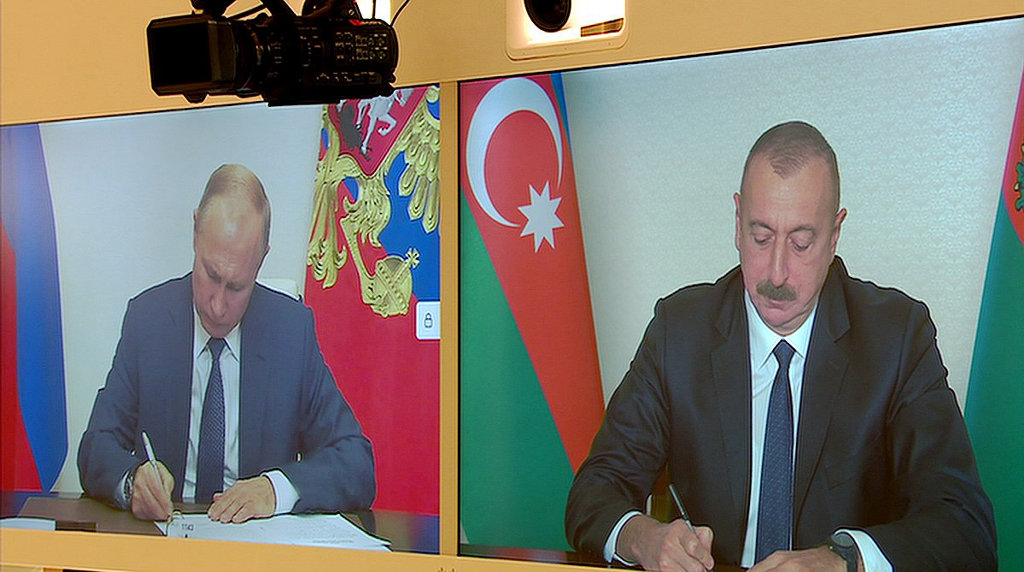The debate over NATO’s relationship with Turkey crested in 2019 with the decision to buy a Russian air defence system, the S400. The purchase was seen as undermining principal NATO members and threatening the security of the F35 fighter. In many ways, Turkey’s relationship with Russia is symbolised by the purchase. The decision to buy the S400 underlines a new stage in their history. Whilst their decision to make them operational, or not, is a metaphor for the depth of the rapprochement. It is easy to question if Turkey and Russia are growing closer or more apart at the start of this decade; but for all these discussions the two countries are following a foreign policy that increasingly sees the nations needing to work together, or, at least, accommodate each other in softer ways than the last few decades. As an Alliance, NATO has neither exploited this nor reacted decisively against but the rapprochement between Russia and Turkey will have geostrategic consequences.
Structure and Argument
This essay looks at the Turkey-Russia rapprochement from the perspective of NATO, as an Alliance, to identify the strategic implications. It is aimed at senior policy makers to military 3* operational commanders and it uses the S400 metaphor to explore two scenarios. Firstly, a minor improvement in relations with the S400 remaining turned off. Secondly, if Turkey decides to significantly deepen relations with Russia marked by operationally activating the S400.
This paper presents the core argument that NATO must be prepared for further security and political compromises to accommodate Turkey if their relationship with Russia continues to improve. From a NATO perspective, Turkey has large armed forces and controls access to the Black Sea. The 2014 Wales communiqué made clear that NATO sees ‘growing instability’ stemming from the Middle East and North Africa, traditionally within Turkey’s historic area of interest.1These factors combine to make Turkey an important partner in delivering NATO’s objectives of containing Russian influence and ensuring the credibility of Article 5. This paper makes a secondary argument that Russia’s actions are likely to be emboldened by the rapprochement. Russia is likely to exploit disunity through ‘liminal’, or sub threshold, manoeuvre. They will look to pressure the internal relationships of the Alliance to undermine the credibility of collective security guarantees. Not keeping Turkey within the core of the Alliance would be a strategic failure for NATO. A failure that would undermine broader Alliance objectives and offer strategic opportunities to other geopolitical competitors such as China.

S400 Remains Turned Off
The Turkey-Russia rapprochement is highly likely to see both nations becoming increasingly confident in their foreign policy, potentially challenging broader NATO objectives or undermining cohesion. One of the principle themes of Turkish foreign policy has been to become a central country in a ‘new international sub-system’.2 Under President Erdoğan, Turkey has sought to exploit political Islam and become regionally dominant in an attempt to form a new power block away from NATO. The 2016 attempted coup also changed the context. On the other hand, this is a Western narrative of Turkish foreign policy arguably not understood by NATO policy makers. Either way, by doing so, Turkey has found itself ‘practically encircled’ by the similarly assertive Russian military, from the Black Sea to Syria, and these deployments contain their activity.3 This dynamic balance of power has forced both nations to reduce their aims to mitigate the strategic risk of conflict. Whilst militarily the nations have skirmished, in Syria, Yemen, and the Black Sea, the rapprochement between the countries provides the political space required for quick de-escalation. In turn, this reassurance emboldens them to be more assertive. NATO’s policy makers must be prepared for this implication and to aide political de-escalation when required.
Critically for NATO, Turkey’s security remains underpinned by Article 5 and this guarantee helps ensure that Turkey works towards Alliance objectives. Even accepting that Turkey is balancing other interests, such as EU membership and domestic politics, NATO membership remains the best form of defence against Russia.4 The security guarantee, however, does not ensure that Turkey will maintain alliance cohesion to the same levels as other states. For example, Turkey did not join NATO members who sanctioned Russia after the annexation of Crimea and they have a mixed record in enabling NATO Black Sea operations.5 Despite not joining these actions, however, Turkey remains politically committed to opposing Russia in support of the Alliance’s core objectives underpinned by confidence in Article 5 support. Turkey’s divergence is driven by multiple factors including the need to maintain the rapprochement with Russia to enable more regional objectives. A second order analysis of this suggests that Russia, or other competitors, can exploit this divergence by offering Turkey compromises elsewhere. The implication for NATO is that reinforcing Article 5 guarantees is an effective tool for keeping Turkey aligned to Alliance objectives, but this guarantee must be considered credible.

To balance Alliance policy towards the rapprochement, NATO must become more strategically focused and accept minor divergence from Alliance positions. This is an implication stemming from an emboldened Turkey wishing to use its links with Russia to lever NATO support. But it is an implication that will be uncomfortable for many Western focused NATO nations. Many Turkish actions, such as provocative naval manoeuvres in Greek waters, military action against the Kurds, or the response to the 2016 coup, do not sit comfortably with the Alliance. One US observer commented that Turkey’s behaviour was akin that of a ‘wayward child’.6 On the other hand, much of Turkey’s divergence should be considered minor tactical actions that do not undermine the central importance of collective defence. It could easily be said that NATO is not supporting Turkey’s foreign policy objectives in the way they have supported other Alliance members. Especially considering the broader political compromises that have been made to accommodate Western NATO allies already. Indeed, NATO has been able to mitigate some internal tension through the involvement of the Secretary General.7 In order to maintain a strategic outlook, NATO will need to focus on understanding why Turkey wishes to diverge and how it can merge their objectives into Alliance strategy in light of the rapprochement with Russia.
In doing this, NATO should not mirror a Western perspective onto Turkey. In contrast to many NATO nations, Turkish strategy makers consider that US strategy has actively undermined their local security situation. Acceptance of it is already considered a strategic compromise.8 NATO’s lukewarm response to potential Turkish requests for Article 5 support underlines this difference in assessment and Turkey could be mistaken for not having full confidence in the Alliance.9 Internally, the Turkish public already have a low level of support for NATO membership highlighting the potential for further tension if NATO cannot reassure Turkey sufficiently.10 As the Turkey-Russia relationship improves, and their actions become more assertive, NATO policy makers must balance this concern against the broader contribution to the Alliance that Turkey offers. It is difficult for NATO policy makers to forget that Turkey has significant armed forces and a pivotal geopolitical position, strongly implying that without them the Alliance would lose significant credibility. Whilst Turkey’s actions may be divergent, and NATO may not agree, it must accept them as the price for maintaining Turkey’s allegiance. After all, Turkey has not yet sought to deepen its rapprochement with Russia, demonstrated by their unwillingness to activate the S400s. NATO should prioritise its common commitment to Article 5 and be prepared to accept strategic compromises to maintain its credibility.
Deepening the Rapprochement: Activating the S400
If Turkey chooses, or is coerced into, activating their S400 operationally it would mark a significant change in their rapprochement with Russia. Whilst it is unlikely that Turkey will be asked to leave the Alliance, NATO policy makers are likely to question if Turkey could continue to be a trusted member. That the US has already ended some military cooperation strongly suggests that trust is already beginning to loosen.11 On the other hand, there are compromises that could be politically acceptable, albeit focused on the specific issue of the F35. For example, Turkey can point to Russian collection efforts against Israeli Air Force F35s as evidence that their use of the S400 will not degrade the capability.12 If NATO wishes to take this risk, then it offers the opportunity to study the capability of the S400 aiding broader Alliance operations. NATO policy makers must discuss and wargame these compromises before they are faced with such questions in public. Drawing from marketing theory, one response could involve greater use of the narrative storytelling to shore up domestic support to enable diplomatic freedoms.13 Yet, such compromises do not fully engage with the broader and more fundamental implications that this deepening of relations with Russia would pose. The implication of this is that Turkey may simply choose to leave the Alliance citing the lack of support for their objectives and accept compromises with Russia as the cost of sovereign freedom. At the time of writing this seems unlikely, but a sudden change in Turkey’s foreign policy should not be discounted as a strategic risk for NATO. Such a move which would likely be supported by a majority of the Turkish public, given their low level of support for NATO, previously mentioned, and exploited by President Erdoğan contemplating how to win the historic 2023 general election.
At their most extreme, the implications for NATO are fundamental to the ethos of the Alliance. If Turkey chooses a path that prioritised rapprochement with Russia, and chooses to remain in the Alliance, NATO members would likely question the validity of Article 5. This rift could be exploited by Russian ‘liminal’ manoeuvre whilst NATO engaged with this structural problem and was unable to respond as a cohesive whole.14 From a neo-realist perspective, this is considered less critical as it arguably reflects the status quo today. NATO’s lukewarm support to Turkey’s potential requests for Article 5 support, coupled with limited practical support compared to other members such as Estonia, underline that Turkey could already be considered an outlier in the Alliance.15 That President Trump has only offered tepid support for Article 5 suggests that the collective guarantee is already breaking and Turkey’s rapprochement is a consequence and not the cause. President Biden must work hard to repair the damage but his words alone are not likely to be sufficient and must be backed with action. At their most extreme, the implication is that NATO will face a resurgent Russia and expanding Chinese influence without the reassurance of political cohesion historically generated by Article 5.
Nagorno Karabakh A Strategic Opportunity?
The flare up of the Nagorno Karabakh conflict shows that Turkey is growing regional influence and shifting the regional balance of power from Russia. This offers NATO an opportunity to roll back Russian influence in their traditional areas of interest if they choose to further embrace Turkey. Many in the West consider the Russian brokered peace deal and subsequent intervention of peacekeepers as a show of strength and assertion into their near abroad, a ‘real diplomatic victory’.16 However, by intervening in the conflict Turkey has demonstrated a growing level of regional influence and shows that a single NATO member standing up to and degrading Russian influence. The use of Turkish weaponry for near decisive victory could be seen as a warning to Russia any intervention without Turkey’s approval could also be challenged. This demonstrates the relative weakness of Russia and is a point not lost in the Russia media.17 Indeed, the contrast with NATO’s response to Ukraine is stark.

Across foreign policy circles, writers call for bold and unilateral Turkish moves to propose peace and open borders. But they note that such actions may meet with disapproval of NATO states.18 Others argue that Turkey is following an imperialist Ottoman foreign policy that NATO nations cannot support.19 NATO is faced with a choice of acceptance or further pushing Turkey from the Alliance. To condemn Turkey’s role, to be indecisive, or to not provide political support, is likely to push Turkey towards greater cooperation with Russia and continue the warming of their relationship. Indeed, President Erdoğan was invited to Russia as President Putin’s guest of honour in December 2020 suggesting this is happening already.20
Yet, arguably this view finds its basis in a Western, or Cold War, thinking in that it is focused on borders and the threat of conventional warfare. Strategically, NATO is ready to do this as demonstrated by UKs latest strategic policy, the Integrated Operating Concept.21 This strategy calls for such activity to ‘constrain’ Russian behaviour to reduce their influence. Turkey’s foothold can be exploited by developing the Alliances role. As the number of touch points increases, so to do the opportunities for NATO to exploit them and purposely destabilise Russia in their near abroad. In turn, this may provide new strategies and tactics for rolling back Russian aggression in other theatres, such as the Baltic States or Ukraine. Turkey’s demonstration of strength shows it is a country better in the Alliance than out and that it is more assertive than most. But only if NATO can understand and embrace Turkey more coherently and accept the strategic compromises outlined earlier in this paper.
Conclusion
NATO policy makers must remain focused on the Alliance’s core mission of deterrence and collective security at the expense of national divergence, however politically uncomfortable this may be for member states. As NATO embraces a more independent Turkey, the Alliance will need to prepare for other members pursuing divergent objectives and look for ways to merge these into Alliance strategy. At its most extreme, the Russia-Turkey rapprochement could question the fundamental ethos of the Alliance, but this should be balanced against the reality of NATO’s political structure today. NATO should guard against this by wargaming options and preparing plans to mitigate strategic risks. Returning to the central argument, the key implication for NATO for the Turkey-Russia rapprochement is the need for compromise and acceptance of divergent aims in interests of upholding the Alliance’s core purpose of collective defence.

Steve Maguire
Steve Maguire is a British Army Officer serving with The Royal Irish Regiment. He has served at regimental duty, with an armoured infantry brigade, and with the Army Headquarters. He is also the Wavell Room Senior Land Editor.
The views expressed in his writing are his and do not represent the views of the Ministry of Defence.
Footnotes
- NATO, “Wales Summit Declaration,” NATO, 2014, https://www.nato.int/cps/en/natohq/official_texts_112964.htm
- Philip Robins, “Turkey’s ‘Double Gravity’ Predicament: The Foreign Policy of a Newly Activist Power ,” International Affairs 89, no. 2 (2013): 381–97.
- ikolett Pénzváltó, “Is Turkey Still a Reliable Ally?,” Academic and Applied Research in Military and Public 18, no. 2 (2019): 87–100, https://doi.org/10.32565/aarms.2019.2.6.
- Oya Dursun-Özkanca, “Turkish Soft Balancing Against the EU?,” Foreign Policy Analysis 13, no. 4 (2016): 894–912.
- Nikolett Pénzváltó, “Is Turkey Still a Reliable Ally?,” Academic and Applied Research in Military and Public 18, no. 2 (2019): 87–100, https://doi.org/10.32565/aarms.2019.2.6.
- Micharl Reynolds, “Turkey and Russia: A Remarkable Rapprochement,” Texas National Security Review, 2019, https://tnsr.org/roundtable/policy-roundtable-the-future-of-turkeys-foreign-policy/
- NATO, “Turkey Is a Valued NATO Ally, 05-Oct.-2020,” NATO Press Release, https://www.nato.int/cps/en/natohq/news_178545.htm
- Aaron Stein, “Why Turkey Turned Its Back on the United States and Embraced Russia,” Majalla, 2019, https://eng.majalla.com/node/73676/why-turkey-turned-its-back-on-the-united-states-and-embraced-russia
- James Joyner, “Why NATO Won’t Go To War Over Syria Shooting Down Turkish Jet,” Atlantic Council, 2020, https://www.atlanticcouncil.org/blogs/new-atlanticist/why-nato-wont-go-to-war-over-syria-shooting-down-turkish-jet/
- Moira Fagan and Jacob Poushter, “NATO Viewed Favorably Across Member States,” Pew Research Center, 2020, https://www.pewresearch.org/global/2020/02/09/nato-seen-favorably-across-member-states/
- Patrick Shanahan to His Excellency Hulusi Akar, 06 June 2019, in “What Turkey’s S400 Missile Deal with Russia Means for NATO”, Jonathon Marcus, https://www.bbc.co.uk/news/world-europe-48620087 (accessed 12 October 2020).
- Dave Majumdar, “Israel’s New F-35s vs. Russia’s S-300s in Syria,” National Interest, 2018, https://nationalinterest.org/blog/buzz/israels-new-f-35s-vs-russias-s-300s-syria-who-wins-shootout-32627
- Tom Hashemi, “Our Greatest Security Risk May Be a Communications Failure,” Wavell Room, http://wavellroom.com/2020/09/08/storytellingfordefence/
- David Kilcullen, The Dragons and the Snakes, 1st ed. (London: C. Hurst & Co, 2020). P.158.
- Michael Moron, “Turkey’s Article 5 Argument Finds No Takers,” Carnegie, 2016, https://www.carnegie.org/news/articles/turkeys-article-5-argument-finds-no-takers/
- Michael McFaul quoted in https://www.washingtonpost.com/world/europe/nagorno-karabakh-russia-peacekeepers/2020/11/19/397d55d8-25c7-11eb-9c4a-0dc6242c4814_story.html
- See eg https://amp.ng.ru/?p=https://www.ng.ru/armies/2020-11-10/1_8010_peacekeepers.html&__twitter_impression=true and https://www.vedomosti.ru/opinion/articles/2020/11/10/846462-rossiya-proigrala (both in Russian)
- See eg Kemal Kirişci and Behlul Ozkan, “After Russia’s Nagorno-Karabach ceasfire, could Turkey step up for a lasting peace”, Brookings Institute, 2020, https://www.brookings.edu/blog/order-from-chaos/2020/11/18/after-russias-nagorno-karabakh-ceasefire-could-turkey-step-up-next-for-a-lasting-peace/
- See eg Dr Daria Isachenko, “Turkey–Russia Partnership in the War over Nagorno-Karabakh”, SWP, 2020, https://www.swp-berlin.org/10.18449/2020C53/
- Henry Meyer, Stepan Kravchenko, Aila Arkhipoc, “Putin bets Turkey will strain EU and NATO relations in his favour, 2020,http://worldoil.com/news/2020/12/11/putin-bets-turkey-will-strain-eu-and-nto-relations-in-his-favor
- UK Ministry of Defence, “Integrated Operating Concept 2025”, 2019, https://www.gov.uk/government/publications/the-integrated-operating-concept-2025





